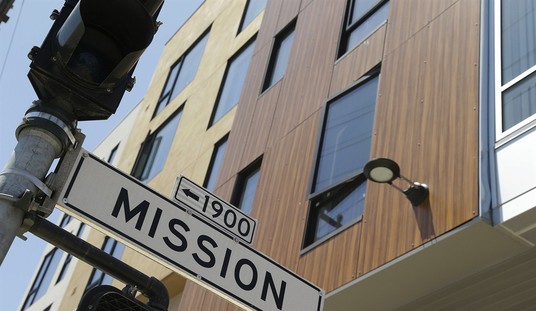Not too long ago, Recep Tayyip Erdogan was riding high as the leader of Turkey. Lasting the longest of all Turkish rulers since the inception of the modern republic by Mustapha Kemal after World War I, the Islamist Prime Minister had managed to pursue progress on a popular basis, calm the Kurdish insurgency, and sideline the military from domestic politics. In a sudden reversal, though, the streets are filled with protesters representing a broad cross-section of Turkish politics, and Der Spiegel hints that the more-secular military may be weighing its options:
Thus far, no opposition party has sought to claim the protests as its own. There have been no party flags, no party slogans and no prominent party functionaries to be seen. Kemalists and communists have demonstrated side-by-side with liberals and secularists. Simply calling them all “marauders and extremists,” as Erdogan has sought to do, will not be enough.
Another threat may also be lurking. In Istanbul, people have begun whispering that the military is distributing gasmasks — but to the demonstrators rather than to the police. The message is clear: The military supports the protests.
The story is certainly consistent with the Turkish military’s traditional role in society. The generals have long seen themselves as protectors of Atatürk’s legacy and as protectors of a secular Turkey. Indeed, the military has staged three putsches in its history to guarantee Kemalist values: in 1960, in 1971 and again in 1980.
Erdogan, to be sure, has done his best to reduce the military’s power. He has removed some officers and had others locked away, convicted of conspiracy. It is difficult to predict how the military might now react to the protests. But Erdogan certainly cannot rely on them remaining in their barracks.
Insulting the revered founder of modern Turkey probably didn’t help, either:
The biggest danger facing the Turkish premier is his own high-handedness. Though he said on Monday that he understood the message being sent by the protesters, there is little evidence that is true. Indeed, his response thus far has shown the degree to which he has become distanced from realities in his country. With hundreds of thousands of people taking to the streets, Erdogan has opted for confrontation rather than de-escalation. On Monday morning, he threatened that he would be unable to keep the 50 percent of Turks who voted for him from taking to the streets themselves. Critics see the comment as nothing less than a threat of civil war. …
Most pointedly, however, he asked if Turkey wanted to follow a law passed by two drunks or the law of God. Since then, the country has been filled with speculation as to who Erdogan may have been referring to. Many believe it was an attack on Atatürk and his Prime Minister Ismet Inönü, who were in office when the ban on alcohol in the country was lifted in 1926. Furthermore, Atatürk is rumored to have died from cirrhosis of the liver. As such, Erdogan’s comments are seen as an attack on a national hero.
His ally, Turkish President Abdullah Gül, tried to take a different tack, but Erdogan managed to undermine the message:
“Calm will reign”? Not quite:
The longer this continues, the more likely we are to see the military reassert its role in protecting the Kemalist character of Turkish government. That won’t include potential leaders who try to undermine that tradition by calling Kemal a drunkard. Erdogan is playing with fire, and now it just remains to be seen whether Gül will stick with him for very much longer.








Join the conversation as a VIP Member